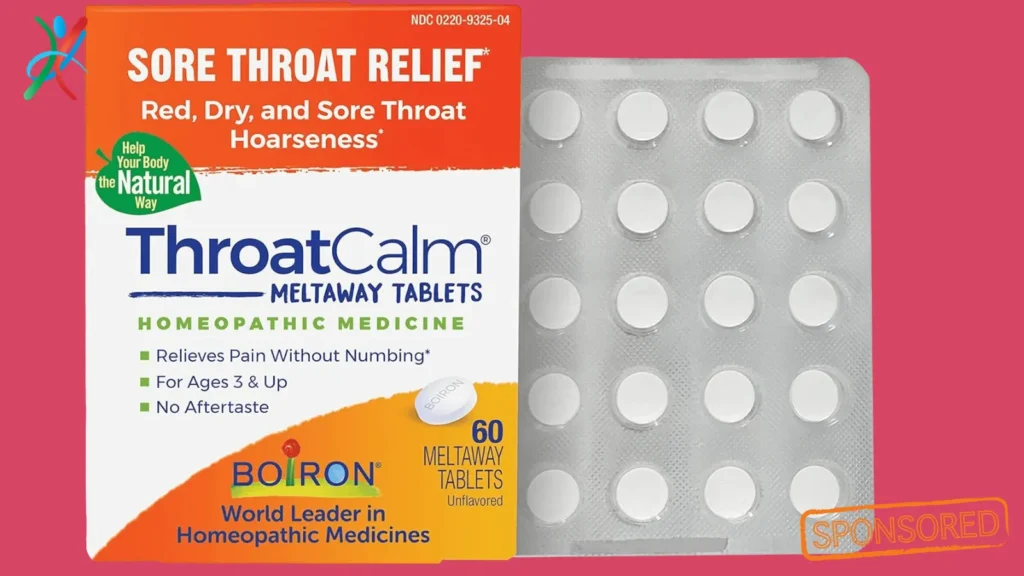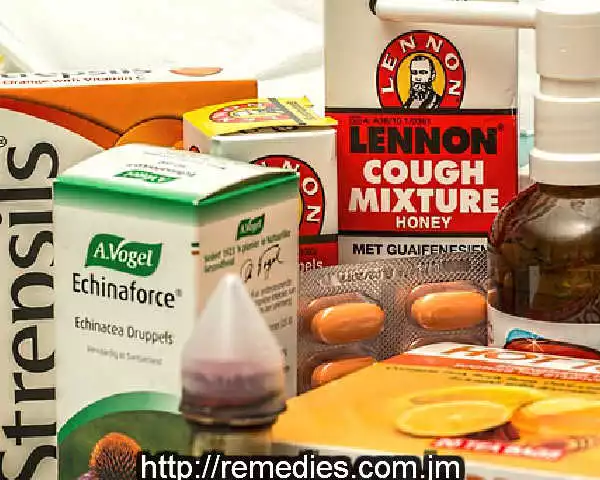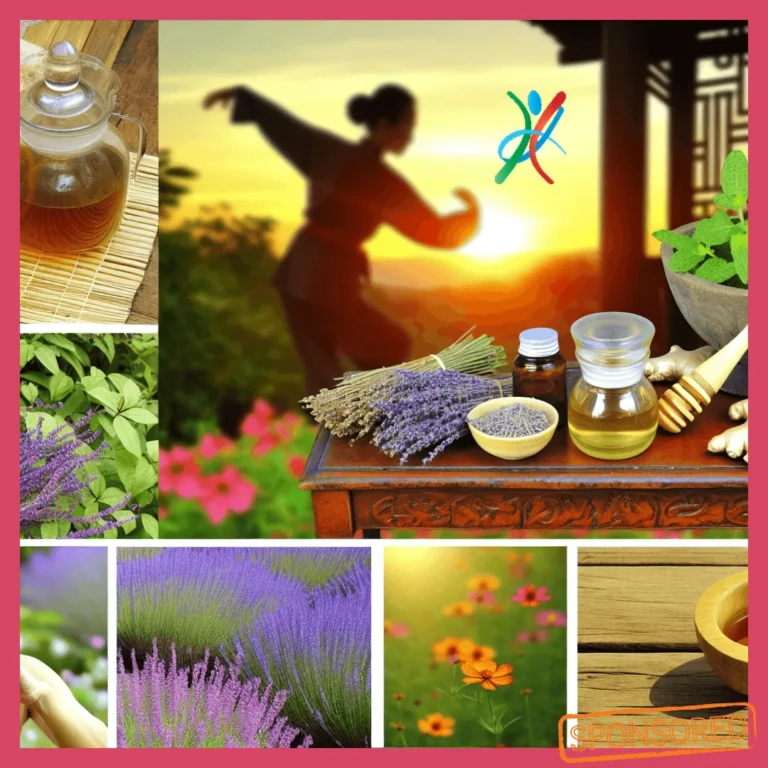Remedies for Sore Throat
Imagine swallowing a spoonful of discomfort every time you take a sip of water – that’s the everyday reality for someone with a sore throat.
Sore throats can be the heralds of colds, consequences of strained vocal cords, or signs of something more serious.
This article delves into the various triggers of this common ailment, from viral and bacterial infections to acid reflux, setting the stage for a deeper understanding of its causes.
A scratchy sensation, pain that worsens with swallowing, and swollen glands in your neck – these are the telltale symptoms of a sore throat that most people are all too familiar with.
In addressing these discomforts, we explore an array of soothing solutions, from the age-old remedy of saltwater gargles to the sweet relief provided by honey and lemon mixtures.
Over-the-counter options and simple lifestyle adjustments also serve as effective ways to ease the pain.
As you gear up to tackle your throat’s tickle, this article offers a comprehensive guide on how to mitigate the misery.
It will arm you with practical advice on when to soldier on with home remedies and when to seek professional medical advice, as well as preventive measures to keep future soreness at bay.
Join us in exploring a range of remedies that promise to provide relief and foster healing for those battling the discomfort of a sore throat.
Causes of Sore Throat
A sore throat can be an uncomfortable, often painful, condition that affects people of all ages.
The most common culprits behind a sore throat are viral and bacterial infections.
Viruses responsible for the common cold or flu frequently cause viral sore throats, especially during times when people gather indoors due to extreme weather, increasing the chances of transmission.
On the other hand, bacterial infections such as strep throat, which is caused by Streptococcal bacteria, require a different approach as they can lead to more severe complications if not treated with antibiotics.
Apart from infections, a sore throat can also arise from non-infectious causes like allergies, which may cause post-nasal drainage leading to throat irritation.
Environmental factors such as smoke, pollution, or inhaling cleaning products can also contribute to a sore and scratchy throat.
Additionally, acid reflux, where stomach acid backs up into the throat, can cause significant discomfort and a chronic sore throat.
In some rare cases, diseases related to the immune system or physical trauma might result in throat pain.
Understanding the exact cause of a sore throat is crucial as it determines the proper treatment course.
While most viral sore throats heal on their own with simple home care, bacterial infections like strep throat might warrant a visit to a healthcare provider for a throat culture and subsequent antibiotic treatment.
Viral Infections
Viral infections are the primary drivers of sore throats, becoming particularly prevalent when people spend more time indoors during extreme weather conditions, thereby facilitating the spread of the illness.
These infections are easily transmitted through air via droplets from sneezes and coughs of infected individuals.
Viral sore throats associated with the common cold or flu typically improve on their own, without the need for medical treatment.
Although uncomfortable, viral sore throats are self-limiting and tend to resolve with supportive care aimed at keeping the throat moist and reducing pain.
Over-the-counter medications can help manage symptoms, but it’s important to note that antibiotics are ineffective against viruses and should not be used in these cases.
Bacterial Infections
Bacterial infections such as strep throat are less common causes of sore throat but require more attention due to their potential for serious complications.
Strep throat is caused by the Streptococcus pyogenes bacteria and can lead to severe issues like rheumatic fever or pneumonia if left untreated.
A distinguishing feature of this bacterial infection is the rapid onset of throat pain coupled with fever, swollen lymph nodes, and white patches on the throat.
Successful treatment of bacterial infections hinges on the use of prescribed antibiotics, typically recommended for a full 10-day course.
It’s essential to complete the entire course of antibiotics to prevent the bacteria from surviving, reducing the risk of reinfection and the development of antibiotic resistance.
Symptoms of bacterial infections like strep throat can improve quicker with antibiotics, significantly decreasing the duration of sore throat pain and the risk of complications.
Acid Reflux
Acid reflux is another contributing factor to sore throat pain.
Conditions such as Gastroesophageal Reflux Disease (GERD) and Laryngopharyngeal reflux (LPR) or silent reflux cause stomach acid to back up into the esophagus and throat, potentially leading to irritation and inflammation.
The regurgitation of acid can cause symptoms that are not limited to throat discomfort, like heartburn and a sour taste in the mouth.
Managing sore throat pain caused by acid reflux often involves lifestyle changes and dietary adjustments to reduce the frequency of reflux episodes.
Additionally, consuming warm liquids like herbal teas with honey and lemon, broth, and gargling with salt water can provide soothing relief.
These remedies help to minimize throat irritation and reduce swelling, offering temporary relief from the discomfort caused by acid reflux.
It’s recommended for individuals suffering from reflux-related sore throat to consult with a healthcare provider for advice on long-term management.
Common Symptoms of Sore Throat
Sore throats can be a discomforting condition with a variety of symptoms that need careful attention.
Common symptoms of a sore throat include:
- Throat Pain: A constant, dull pain in the throat which may aggravate while swallowing.
- Scratchy Sensation: An irritating feeling as though scratching is occurring within the throat.
- Swollen Glands: Lymph nodes in the neck might become tender or enlarged as they fight off the infection.
- Fever: Indicates the body is battling an infection and may accompany a sore throat.
- Headache: A common symptom that can occur alongside a sore throat.
- Upset Stomach: Some may experience nausea or vomiting, particularly in the case of strep throat.
- Nasal Congestion: A stuffed or runny nose often occurs with upper respiratory infections causing a sore throat.
If you experience a sore throat with difficulty in breathing, swallowing, unusual drooling, or a high fever, seek immediate medical care.
These symptoms could indicate a more severe condition requiring prompt attention.
Remember, a sore throat can simply be the first sign of a common cold, but it’s important to watch for additional symptoms to understand the cause and select the appropriate remedies.
Natural Remedies for Sore Throat
A sore throat is a common yet uncomfortable condition that can significantly affect your daily activities.
Instead of immediately reaching for over-the-counter medication, many individuals seek relief from natural remedies.
There are a variety of options that may provide comfort using simple ingredients found in most households or natural products easily accessible online or at health food stores.
These natural approaches can soothe a painful throat and complement other treatments, aiming to ease the symptoms and promote healing.
Warm Salt Water Gargle
One of the simplest and most effective natural remedies for soothing a sore throat is gargling with warm salt water.
This remedy helps reduce inflammation, break down secretions, and inhibit bacterial growth in the mouth, creating a hostile environment for pathogens.
To prepare, dissolve half a teaspoon of salt in a full glass of warm water.
The American Osteopathic Association recommends gargling with this solution at least once an hour to get the best results.
Consistent use of this inexpensive and easy-to-make solution can make a noticeable difference in your throat’s comfort level.
Warm Liquids
Sipping warm liquids is another tried-and-true remedy for sore throat relief.
Beverages like lemon tea with honey offer warmth that can soothe the throat, while the honey provides an anti-inflammatory effect.
Herbal teas, such as chamomile and peppermint, are especially comforting, with their gentle flavors and therapeutic properties.
Additionally, drinking warm broths can have a dual benefit of keeping you hydrated and easing sore throat pain.
Such warm fluids help maintain throat moisture, which is essential for recovery and symptom alleviation.
Honey and Lemon
The combination of honey and lemon is a powerhouse for treating sore throats.
Honey brings its anti-inflammatory and antimicrobial qualities to the table, while lemon contributes vitamin C and antioxidants.
Adding these to warm water can create a soothing elixir that not only reduces throat pain but also keeps mucous membranes moist, thanks to the increase in saliva production.
For a spicy twist, ginger root tea with its antibacterial and anti-inflammatory effects may further bolster the throat-soothing mix, enhancing the natural relief power of this time-honored remedy.
Marshmallow Root Tea
Marshmallow root is a herb known for its high mucilage content, which acts as a protective coating for the throat, thus easing discomfort and irritation.
Available in tea, tincture, dried, or capsule form, marshmallow root provides versatile options for those seeking relief from throat pain.
When using dried marshmallow root for tea, ensure it comes from a high-quality source to maximize its soothing potential.
Studies have shown that licorice root combined with marshmallow root can be more effective than a placebo tea in soothing sore throat pain in the short term.
Licorice Root Tea
Licorice root has been studied for its effectiveness in soothing sore throats, particularly against the bacteria that causes strep throat.
This natural remedy helps reduce throat pain through its anti-inflammatory properties.
A simple tea made from steeping ground licorice root in hot water, then straining, can offer much-needed relief.
It has been found that gargling with licorice water before surgery can halve the risk of postoperative sore throat compared to gargling with sugar water.
Licorice root tea can be a comforting beverage for those looking to ease throat pain and is readily available from various health stores or online.
Over-the-Counter Remedies for Sore Throat
When tackling the discomfort of sore throats, over-the-counter (OTC) remedies can be a quick and efficient solution.
Among the variety of OTC options, nonsteroidal anti-inflammatory drugs (NSAIDs), such as Advil (ibuprofen) or Aleve (naproxen), are common go-to choices.
These medications are designed to reduce pain, swelling, and fever that often accompany a sore throat.
NSAIDs offer dual benefits as they act as both pain relievers and anti-inflammatories, helping to alleviate the symptoms of sore throats.
In addition to NSAIDs, other OTC items such as throat lozenges and sprays contribute to symptom relief.
For more natural approaches within the OTC sphere, honey — with its anti-inflammatory, antimicrobial, and antioxidant properties — is considered beneficial for soothing a sore throat.
Moreover, several sprays made from botanicals like sage and echinacea have been shown to be as effective as antiseptic medication sprays.
Chamomile tea, which is commonly available and can be purchased without a prescription, is also a comforting option.
Furthermore, acetaminophen is another analgesic known for alleviating sore throat pain and reducing fever.
List of OTC Sore Throat Remedies:
- NSAIDs (e.g., Advil, Aleve)
- Honey (for its natural soothing properties)
- Sage and echinacea throat sprays
- Chamomile tea
- Acetaminophen
- Licorice root
- Apple cider vinegar
Remember to always read and follow the labels on OTC products to ensure proper dosage and to be aware of any potential interactions or contraindications.
Throat Lozenges and Sprays
Moving to the specific applications of OTC remedies, throat lozenges and throat sprays play a pivotal role in managing sore throat symptoms.
Lozenges often contain ingredients such as menthol or benzocaine, which can soothe a scratchy throat and provide a numbing effect that offers temporary relief from throat pain.
Not only do they alleviate discomfort, but their formulation also stimulates saliva production, helping to keep the throat moist — an essential factor in the relief and healing process.
Throat sprays, including those with active ingredients such as peppermint oil, offer a direct soothing effect and can help in thinning mucus, which eases swallowing and minimizes throat irritation.
Additionally, sprays containing a blend of sage and echinacea have been found to be as effective as traditional antiseptic sprays.
These can be convenient choices for quick relief when it’s not possible to sip warm liquids or gargle.
Pain Relievers
OTC pain relievers are a cornerstone in managing sore throat pain.
NSAIDs, including ibuprofen, excel at reducing inflammation and offering relief from the discomfort of a sore throat.
Furthermore, these medicines can help in lowering fever, allowing those afflicted to feel more comfortable as they recover.
It’s important to note that while antibiotics are crucial for treating bacterial infections like strep throat, they are not effective against viral infections and should not be used unless a bacterial infection has been confirmed.
For those seeking alternatives, throat lozenges and cough drops with ingredients such as menthol and/or benzocaine may provide a soothing and numbing effect on a painful or scratchy throat.
As always, directions for use should be followed carefully to avoid unnecessary side effects and to ensure the best outcome.
Throat Culture
A throat culture is a diagnostic tool used to determine the cause of a sore throat when bacterial infection is suspected, such as strep throat.
The procedure involves taking a sample from the back of the throat with a sterile swab.
While the swabbing can induce gagging, the process itself is not painful and can provide valuable information.
A rapid strep test can yield results rapidly, whereas a full lab test may take 1-2 days but is more conclusive.
Additionally, throat cultures can detect other bacterial infections beyond strep, including chlamydia or gonorrhea, which may affect the throat.
By identifying the specific cause of a sore throat, healthcare providers can prescribe the most effective treatment, including the appropriate antibiotics if a bacterial infection is present.
Hence, a throat culture is a vital step in ensuring accurate diagnosis and treatment.
Lifestyle Changes to Soothe Sore Throat
Adopting key lifestyle changes can significantly impact the relief of sore throat symptoms.
Committing to simple adjustments such as resting your voice, ensuring ample sleep, and maintaining a comfortable environment are foundational to recovery.
Here are several strategies that can help soothe a painful throat:
Avoiding Irritants
Minimizing your exposure to irritants can play a critical role in alleviating sore throat discomfort.
Cigarette smoke, laden with harsh chemicals, not only irritates the throat lining but can also hinder your immune response.
Likewise, fumes from cleaning products and paint may exacerbate throat irritation; opt for natural, gentle cleaners when possible, and ensure proper ventilation in freshly painted areas.
Owning an air purifier could be beneficial, as it helps to eliminate potential airborne irritants.
If using a humidifier, remember to clean it regularly to prevent the buildup of bacteria and mold, which could worsen your sore throat.
Staying Hydrated
Keeping the throat moist is essential for comfort and healing when dealing with a sore throat.
Drink plenty of water throughout the day to lubricate your throat and assist in swallowing.
Warm drinks, such as herbal teas with honey, can provide a soothing coating, while cold options like ice pops numb the pain and offer relief.
Incorporate healing beverages such as chamomile or peppermint teas, which offer anti-inflammatory benefits alongside hydration.
Humidifying the Air
Dry air can aggravate a sore throat, making a cool-air humidifier a must-have in creating an optimal healing environment.
It helps keep your throat and mucous membranes moist, thereby reducing pain and promoting ease in breathing.
Regular cleaning of the humidifier is necessary to avoid introducing new irritants into the air.
Additionally, saline nasal sprays can supplement moisture in the nasal passages, complementing the benefits of a humidifier.
Rest and Relaxation
Allowing your body the time to rest is perhaps the most important factor in overcoming a sore throat.
Prioritizing sleep and avoiding strenuous activities give your immune system the opportunity to fight off the infection or inflammation.
Keeping well-hydrated and using a humidifier or vaporizer to add moisture to the air enhance this restful state.
Importantly, minimize vocal strain — talking loudly or frequently can perpetuate throat irritation.
Embrace quiet activities and give your voice a break to support the healing process.
By implementing these preventative and proactive measures, you can create a healing sanctuary for your throat, accelerating recovery and enhancing comfort during a sore throat episode.
When to Seek Medical Attention
When dealing with a sore throat, it is crucial to recognize when home remedies are insufficient and medical attention is necessary.
A severe sore throat accompanied by fever, rash, or notably swollen tonsils that block the throat should be promptly evaluated by a healthcare professional.
While natural remedies may offer relief, they are not a substitute for professional medical advice in serious cases.
Persisting sore throats that show no improvement with home or over-the-counter treatments should raise a red flag.
In such instances, it is advisable to visit a doctor as further testing might be needed to identify the core cause.
Particular symptoms demand immediate medical intervention.
If a sore throat includes white patches, increased swelling of the tonsils, or red spots, it could indicate a bacterial infection that requires antibiotics.
Timely treatment is essential to not only address the discomfort but also prevent potential complications like rheumatic fever.
When to See a Doctor for Sore Throat:
| Symptoms | Action |
| Severe throat pain with fever, rash | See a doctor immediately |
| Difficulty swallowing or breathing | Seek urgent medical care |
| Persistent sore throat | Schedule a doctor’s visit |
| Home remedies fail to improve symptoms | Consult a doctor |
| Throat displays white patches, swollen tonsils | Contact a doctor for a possible prescription |
Remember, untreated infections can escalate quickly, making it important to heed these warning signs.
Prevention Tips for Sore Throat
Preventing a sore throat starts with several straightforward yet effective measures aimed at reducing the risk of infection and exposure.
At the heart of these preventative strategies lie good hygiene practices, avoiding close contact with those who are ill, bolstering one’s immune system, and managing conditions like acid reflux that can contribute to throat irritation.
Practicing Good Hygiene
Adopting a firm stance on hygiene can serve as the first line of defense against sore throats.
Use an alcohol-based hand sanitizer when you can’t access soap and water to kill germs efficiently.
Make a habit of coughing or sneezing into tissues, disposing of them immediately, and washing your hands to prevent spreading germs.
Keeping your hands away from your face, especially your nose and mouth, will also reduce the likelihood of transferring infectious agents to your mucous membranes.
It’s also vital to frequently disinfect high-contact surfaces such as doorknobs, remote controls, and smartphones.
A comprehensive approach to hygiene isn’t just about cleanliness; it includes nutrition and physical activity.
A diet rich in fruits, vegetables, and whole grains, combined with regular exercise, will support your overall health and your body’s ability to fend off infections.
Avoiding Contact with Infected Individuals
An important aspect of preventing sore throats is to avoid direct contact with those who are currently sick.
Do not share food, drinks, utensils, or personal items with others, especially if they exhibit symptoms of a cold or sore throat.
This simple measure can significantly decrease your chance of catching viral or bacterial infections that cause sore throat.
Parents can teach their children the importance of handwashing and personal space to help them avoid catching or spreading sore throats and other respiratory illnesses.
Moreover, smokers are encouraged to quit, and all individuals should strive to steer clear of secondhand smoke, both of which can significantly reduce the risk of a sore throat.
Strengthening the Immune System
Your immune system is a complex network designed to fight off infections.
One can enhance their immune function with a concerted effort in their dietary choices.
For example, herbal teas, such as black, white, or green tea, are rich in antioxidants which help in reinforcing your immune responses.
Adding a teaspoon of lemon juice to your water or tea can impart beneficial vitamin C, while honey, recognized for its antimicrobial properties, can not only soothe the throat but expedite recovery.
A warm bowl of chicken soup isn’t just comforting; it has been shown to help reduce inflammation, potentially impacting the immune response positively.
Furthermore, peppermint tea is not just comforting—it has anti-inflammatory properties that can further aid your immune system.
Taking Acid Reflux Medications
When a sore throat is due to acid reflux, managing the reflux effectively can prevent the throat from becoming sore.
Over-the-counter antacids can neutralize stomach acid and offer symptomatic relief.
Watching one’s diet, particularly close to bedtime, can prevent nighttime symptoms.
Foods that are known to aggravate acid reflux, such as spicy and acidic foods, should be consumed in moderation or avoided to reduce the risk of throat irritation.
For those who frequently suffer from acid reflux, gargling with warm salt water can alleviate throat pain that often accompanies it.
Maintaining a proper eating schedule and making lifestyle adjustments, in concert with medications if necessary, can go a long enough way in preventing a sore throat associated with acid reflux.







